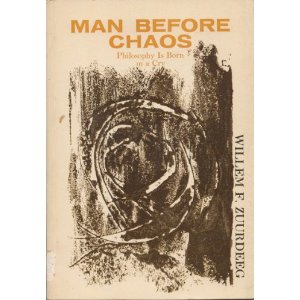 My way of listening and seeing is profoundly shaped by Willem Frederik Zuurdeeg, the late Professor of the Philosophy of Religion and author of An Analytical Philosophy of Religion, and Man Before Chaos: Philosophy Is Born in a Cry, completed following Zuurdeeg’s untimely death by his colleague and friend, Esther Cornelius Swenson, my undergraduate college professor.
My way of listening and seeing is profoundly shaped by Willem Frederik Zuurdeeg, the late Professor of the Philosophy of Religion and author of An Analytical Philosophy of Religion, and Man Before Chaos: Philosophy Is Born in a Cry, completed following Zuurdeeg’s untimely death by his colleague and friend, Esther Cornelius Swenson, my undergraduate college professor.
They were those rare Christian philosopher-theologians whose work crossed the solid line between the philosophical rigors of empiricism and linguistic analysis, on the one hand, and the depths of existentialists Sartre, Heidegger, Camus, and Marcel and their precursors Dostoevsky and Kierkegaard.
Every day I start out with a fresh-brewed cup of coffee and read the newspaper. What a way to start a day!!! “Don’t give me no bad news, no bad news, no bad news!” But most of the news that’s printed is just that: bad news.
But good news reporting is a thing of joy and a call for celebration. My heroes include muckrakers like A.J. Muste, reporters like Edward R. Murrow, Harrison Salisbury, Daniel Schorr, Bill Moyers, Paul Krugman, and the comedians whose irreverent and sometimes coarse humor exposes the absurd and helps us laugh when we would cry: Jon Stuart, Bill Maher, Lewis Black, Steven Colbert.
I come at the news from a different angle than professional journalism or comedy. My ears are tuned by Willem Zuurdeeg, Esther Swenson, other beloved teachers at Maryville College, McCormick Theological Seminary, and Harvard Divinity School; the people of the congregations and campuses where I have been privileged to minister, and the criminal defense clients of the Legal Rights Center, Inc. where Dostoevsky’s world of Crime and Punishment, Dom Sebastian Moore’s The Crucified Jesus Is No Stranger, and Jesus’ Beatitudes and parables helped me to hear a deeper Voice than the cries that sometimes drove them and their defense lawyers to despair.
I have always had the sense of living at the edge of existence. From the edge I listen for the spoken and unspoken convictions “where ignorant armies clash by night” (Matthew Arnold, “Dover Beach“) to win our minds and hearts, the wars between and among ideologies, ideals, prejudices, states, nations, political parties, religions, economic convictions that shape us for good or for ill.
Lately I have been drawn back to Gabriel Marcel’s The Mystery of Being and Homo Viator to which Dr. Swenson introduced me in college but which were then beyond my experience or interest. Many years later, I find myself more and more at home in the mystery of being itself. I resonate with William Sloane Coffin’s reflection in his last years of life following a stroke.
There is a Zen paradox whereby we may lack everything yet want for nothing. the reason is that peace, that is, deep inner peace, comes not with meeting our desires but in releasing ourselves from their power. I find such peace is increasingly mine. It’s not that I feel I’m withdrawing from the world, only that I am present in a different way. I’m less intentional than “attentional.” I’m more and more attentive to family and friends and to nature’s beauty. Although still outraged by callous behavior, particularly in high places, I feel more serene, grateful for God’s gift of life. For the compassions that fail not, I find myself saying daily to my loving Maker, “I can no other answer make than thanks, thanks, and ever thanks.”
– William Sloane Coffin, Credo

Reblogged this on wordsofhonestunwisdom.
LikeLike